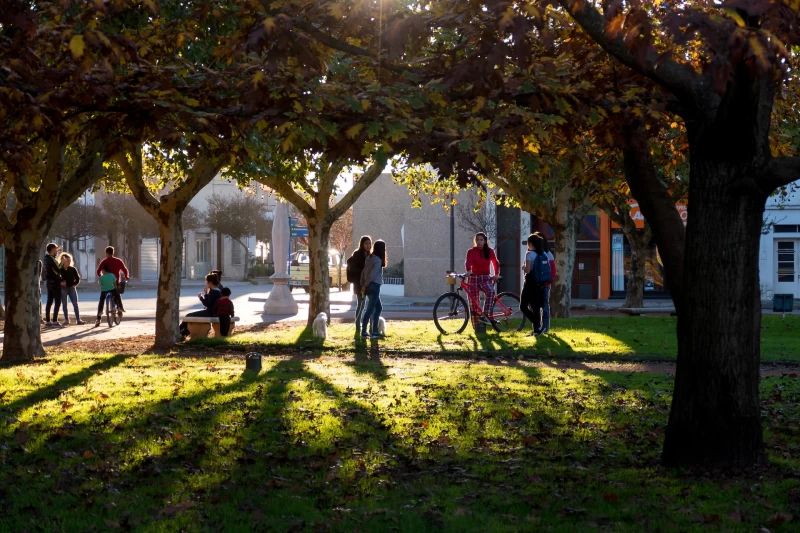Making the most of university open days 2023: A guide for parents and students

By Helen Green
The university open day season has arrived, and students are welcomed back to campus. As a career practitioner and parent, I understand the importance of open days for prospective students and their parents.
In this article, I will provide practical tips and advice to help you and your teenager make the most of open days in 2023. Whether attending in person or virtually, these tips will help you navigate the open day experience, compare courses and gather important information to make informed decisions.
1. Be informed: Research and prepare
Before attending open days, it's helpful to research prospective study courses and be prepared. With the availability of multiple formats, accessibility has improved, making the experience less overwhelming. Consider:
- the breadth of courses offered
- your child's preferences
- proximity to transport
- fees
- other relevant factors, such as student support and format of teaching.
Find out if the courses your child is considering are taught in person on campus or primarily online. Make a list of the faculties/schools you want to visit and prepare questions you'd like answered.
2. Utilise online open day schedules and apps
Online university open day schedules and apps are invaluable resources.
- Take note of the dates, and check if you need to register for specific sessions, including interactive Q&A panels, webinars and sample lectures.
- Pay attention to campus tours and presentations from faculty leaders, current students, alumni and career staff.
These resources will help you and your teenager plan your open day experience effectively. 
3. Involve your teenager: Encourage ownership
Whether attending in person or virtually, encourage your teenager to participate in what is their future. It's essential that they have the opportunity to directly engage with staff and current students.
Online chats may suit some students, while others might prefer face-to-face interactions.
Additionally, universities often offer specific information sessions for parents, so you can get involved and ask questions.
Remember, you can always follow up with the university after open days if you have additional inquiries.
4. Be mindful of changes and opportunities
The education sector undergoes changes every year, including the introduction of new courses, facility upgrades and changes in entrance criteria.
Be open to exploring new opportunities and revisiting courses that might have been dismissed earlier. This is particularly relevant for students who have deferred their studies.
Stay informed about developments in your child's areas of interest to make the most of the opportunities available.
5. Remove the pressure: Embrace multiple interests
It's important to alleviate the pressure on students when it comes to choosing their future careers. Understand that this generation can expect to have multiple careers throughout their lives, often in fields that don't exist yet.
With this in mind, it is okay — indeed often advantageous — for your child to pursue a broad-based undergraduate degree in areas of general interest. This allows them to:
- explore their passions
- develop a wide range of skills
- keep their options open for further study or work.
Remember, the most successful students are often those who study what genuinely interests them.
6. Explore the campus experience
If possible, visit universities in person to experience the campus atmosphere first-hand. This will provide you and your teenager with insights into university life beyond just the available courses.
Take the time to explore clubs, societies, sports facilities and other aspects of campus life. Open days offer a unique opportunity to narrow down preferences by learning what your child likes and dislikes.
If an in-person visit isn't feasible, plan to attend the university at a later date.
7. Ask questions: Engage with the university community
Make the most of open days by engaging with current students, alumni, course directors and faculty staff. Ask about:
- their experiences with the course
- future career plans
- what they enjoy about campus life.
You can also inquire about the support services offered to students, such as:
- academic study support
- counselling
- health and disability support
- careers assistance
- library resources
- student employment
- security on campus
- accommodation options.
Gain insights into how the university has adapted to change and supported its current students.
8. Uncover important details
During open days, gather vital information about the courses your child is considering.
- Find out about the course entry requirements, prerequisite subjects, fees, contact hours and whether Commonwealth Supported Places are available.
- Explore the subjects, majors and streams within the degrees your child is contemplating.
- Learn if the course is offered on multiple campuses and if early entry is an option.
- Consider the typical career outcomes for the program and the flexibility to change specialisations or study load.
- Look for work-integrated learning opportunities and accreditation by industry bodies.
- Compare the course with similar programs at other universities if relevant.
- Explore alternate study pathways, double degree options, transfers between similar courses and professional graduate study opportunities.

9. Remember ATARs are indicative
It's important not to base your child's career exploration solely on their ATAR (Australian Tertiary Admission Rank) range. The ranking is influenced by supply and demand and doesn't necessarily reflect the academic challenge of a course.
Help your child understand that their ATAR does not define them, and there are alternative pathways to their preferred career. Encourage them to think broadly and consider a range of career interests.
University open days provide valuable insights into courses, campus life and future career paths. By being well-informed, involving your teenager, asking questions and exploring the campus experience, you can help your child make informed decisions about their educational journey.
Remember, university study is just one part of the picture, and there are alternative pathways through vocational training and TAFE courses.
After open days, consult with teachers and career professionals to reassess subject choices and tertiary course preferences. Embrace the opportunities and possibilities available, and support your child in finding their path to a fulfilling career.



